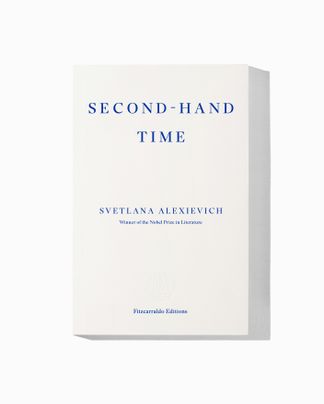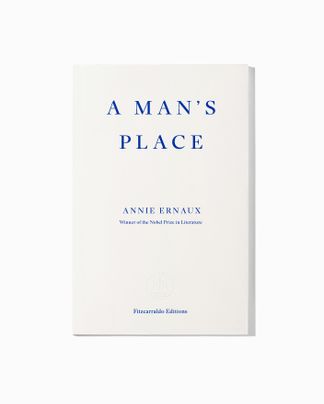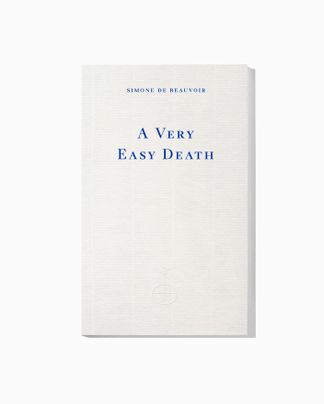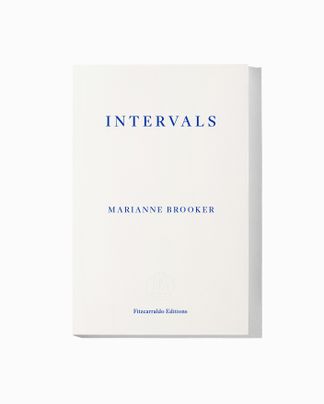In What Is Mine, sociologist José Henrique Bortoluci uses interviews with his father, Didi, to retrace the recent history of Brazil and of his family. From the mid-1960s to the mid-2010s, Didi’s work as a truck driver took him away from home for long stretches at a time as he crisscrossed the country and participated in huge infrastructure projects including the Trans-Amazonian Highway, a scheme spearheaded by the military dictatorship of the time, undertaken through brutal deforestation. An observer of history, Didi also recounts the toll his work has taken on his health, from a heart attack in middle age to the cancer that defines his retirement. Bortoluci weaves the history of a nation with that of a man, uncovering parallels between cancer and capitalism – both sustained by expansion, both embodiments of ‘the gospel of growth at any cost’ – and traces the distance that class has placed between him and his father. Influenced by authors such as Annie Ernaux and Svetlana Alexievich, What Is Mine is a moving, thought-provoking and brilliantly constructed examination of the scars we carry, as people and as countries.
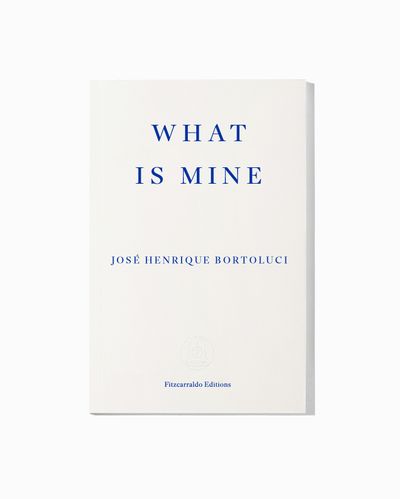
What Is Mine
Translated by Rahul Bery
French paperback with flaps, 160 pages
Published 2 May 2024
What Is Mine
Translated by Rahul Bery
I . REMEMBER AND TELL MY STORY
‘My father always away and his absence always with me. And the river, always the river, perpetually renewing itself.’
— João Guimarães Rosa, ‘The Third Bank of the River’
Remember, your dad helped build this airport so you could fly. I hear my father’s words every time I catch a flight from Guarulhos Airport. And while I always remembered, it has taken me some time to truly understand. The truck driver father visits his home, his wife and his kids. He comes and, before long, leaves again. He always came with his truck, they were a duo, almost a single entity, both too much and not enough, imposing and ephemeral. As a boy, I always wanted them to stay, wanted them to go, wanted to go with them.
He said these exact words when we were on our way to that airport in 2009, the day I left to do my PhD in Sociology in the United States. During the months I spent preparing for the move, I showed him the state of Michigan several times on the map. We calculated the distance between Jaú and Ann Arbor, where I would live for the next six years. My father doesn’t understand the world of universities, is unfamiliar with its nomenclature and rituals. He has only a vague notion of what it means to do a PhD. But he does understand distances.
Eight thousand kilometres separate the two cities. This number failed to impress him. He had covered hundreds of times that distance over five decades as a truck driver. One day he asked me to calculate how many times you could travel around the world with the distance he had covered as a driver.
Could it get you to the moon?
In my father’s imagination, a journey from Earth to the moon is a more solid concept than my life as an academic, teacher and writer.
Words are roads. They’re what we use to connect the dots between the present and a past we no longer have access to.
Words are scars, the remnants of our experiences of cutting and sewing up the world, gathering its pieces, tying back together the things that had the temerity to scatter.
Words were the world my father brought with him in his truck during my childhood. They resounded by themselves – cabin, Trans-Amazonian, trailer, highway, Pororoca, Belém, homesickness – or formed part of narratives about a world that seemed impossibly large. I had to imagine them in all their colours, record them in my memory and cling onto them, because soon my father would leave and he wouldn’t be back for forty or fifty days.
(…)
‘[Bortoluci] combines the recent history of his family with that of Brazil, contextualizing his father’s life and drawing uncomfortable parallels between cancer and capitalism: both must be sustained by expansion, both are embodiments of “the gospel of growth at any cost”…. The road may be an overused metaphor but it is skilfully and movingly deployed by Bortoluci and his translator Rahul Bery, who captures all the nuances of the author’s discussions with his father. What Is Mine – the title evokes Didi at last claiming his own story – takes the reader on a journey not only through the life of an ordinary Brazilian truck driver but through the changing relationship of father and son as the latter follows his own very different road.’
— Anna Temkin, Times Literary Supplement
‘A very beautiful book.’
— Annie Ernaux, winner of the Nobel Prize for Literature 2022
‘A son’s journey, around father and country, subtle and complex, tender and brutal; an intimate work of rare beauty and power.’
— Philippe Sands, author of East West Street
‘What Is Mine is an unforgettable oral history of truck driving along the potholed roads carving up the Amazon rainforest: bandits, sleep deprivation, beef barbecued on the engine. It is also an incisive political critique of ecocidal ideas of “progress”, a powerful reflection on the ways labour shapes a human body, and a loving exploration of a relationship between a father and son. It already has the feel of a classic.’
— Caleb Klaces, author of Fatherhood
‘A political document told as memoir, this is a book of incredible beauty and insight, one which demonstrates one of the greatest truths: that our lives, and the lives of our families, are inextricably bound to the structures of class, economics, and history they were born into.’
— Madeleine Watts, author of The Inland Sea
‘Powerful in its atomization of the Brazilian style of “capitalist devastation” that goes by the name of progress, movingly tender in its evocation of an Odysseus of a father, a long-distance trucker who plays a part in the construction of the Trans-Amazonian Highway, this is a memoir like no other. I read it in one great gulp, unable to put it down. Brilliant!’
— Lisa Appignanesi, author of Everyday Madness
‘What Is Mine is a unique mosaic of biography, political commentary, sociology and critical history at once personal and national. This formal hybridity sets the stage for an exploration of how an ordinary man’s life – with its many nuances and hiccups – might illustrate the convoluted trajectory of a nation more accurately than one expects…. His project teaches us that to study history demands more than abstraction and generalization. It requires an empathy that encompasses even those experiences we have never had, such that, in our admittedly limited imaginations, we will know how to advocate for one another – and to use the languages we don’t just inherit but are constantly learning for ourselves.’
— Jimin Kang, The Nation
‘Bortoluci opens with a portrait of his childhood, which was economically precarious but emotionally tender, even as his father was absent for long stretches of time. In the 2010s, as Didi’s health declined due to cancer, Bortoluci sat down to record the details of his father’s adventures. From the 1960s through the early aughts, Didi saw more of Brazil than most of its citizens. He illuminates for Bortoloci how regime changes influenced the country’s infrastructure, and how his and his friends’ attitudes about social mobility shifted as they learned just how perilous their work was and how underpaid they were for it. Didi’s evocative account of life on the road touches on the obstacles (mudholes) and distractions (brothels) faced by time-crunched drivers, but most memorable is his chilling description of the 1970s construction of the Trans-Amazonian Highway connecting the Pacific and Atlantic Oceans, which tore through small towns and caused massive deforestation. With its twin focus on family and country, this unique memoir makes for moving and edifying reading.’
— Publisher’s Weekly
‘[A] truly extraordinary book – already a classic of the genre … [By] portraying a single life as a result of the interplay between often contradictory forces, it reinforces how the private is always political and the importance of bearing witness.’
— Bartolomeo Sala, Something Curated
‘The reflection on Brazilian problems (the disastrous Amazon integration project, the country’s political deterioration) and also on issues that recur regardless of geography (the exploitation of the working class and the environment, disease, relationships between parents and children) is one of the triumphs of What Is Mine.’
— O Globo
‘Father José Bortoluci, Didi, embodies a figure at once fundamental and renegade in Brazilian history, ignored in national narratives or condensed into an abstract stereotype…. The book gives a name and individuality to the truck driver.’
— Folha de S. Paulo
José Henrique Bortoluci was born in Jaú in 1984. He has a BA in International Relations and an MA in Social History from the University of São Paulo, as well as an MA and a PhD in Sociology from the University of Michigan, where he lectured and was a Fulbright fellow. He is a professor of Sociology at the Fundação Getúlio Vargas in São Paulo, where his lectures and research revolve around Brazilian politics, social theory, democracy and social movements.
Rahul Bery is based in Cardiff, Wales and translates from Spanish and Portuguese to English. His published translations include novels by Vicente Luis Mora, Afonso Cruz, Simone Campos and David Trueba.

